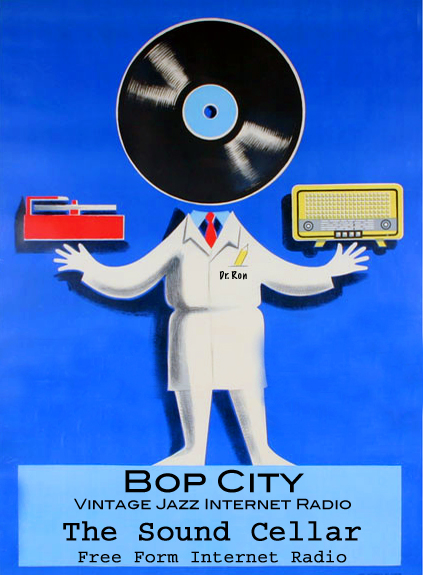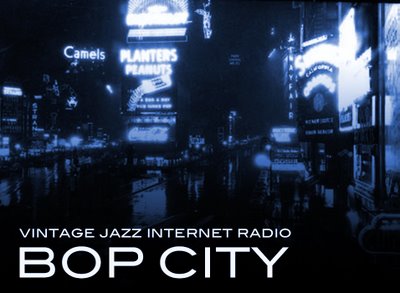
The Hunt also accrued its mythology because of its mention in two iconic books by Beat writers John Clellon Holmes and Jack Kerouac. John Clellon Holmes (1926-1988) was a writer, poet, and professor, best known for his 1952 book Go, considered the first "Beat" novel, which depicted events in his life with friends Jack Kerouac, Neal Cassady, and Allen Ginsberg. In Go, he writes, "The Hunt: listen there for the anthem in which we jettisoned the intellectual Dixieland of atheism, rationalism, liberalism—and found our group's rebel streak at last." Jack Kerouac (1922-1969) hardly needs an introduction. Not only is he the most famous Beat writer, he is credited with creating the term "Beat." In his novel, On the Road, the defining work of the postwar Beat Generation, he writes:
"They ate voraciously as Dean, sandwich in hand, stood bowed and jumping before the big phonograph, listening to a wild bop record I had just bought called "The Hunt," with Dexter Gordon and Wardell Gray blowing their tops before a screaming audience that gave the record fantastic frenzied volume."
Dexter and Wardell recorded The Hunt at the Elks Auditorium, also known as the Elks Hall, the Elks Ballroom, and the Elks Club. Mention Elks or its street, Central Avenue, to a jazz fan and you will likely elicit a knowing bebop nod of the head and insider's smile; the mythology has immortalized the place and its better events. A listen of The Hunt reveals that the song "Cherokee" (also referred to as "Geronimo" and "Cherrykoke") sends the crowd into a frenzy—and rightly so. The playing sounds incredible, not least because of Dexter's sinuous lines that carry most of the song until Wardell joins in and intensifies the heat for the last two or three minutes. Sheer delight for the crowd then and listeners now. The concert recording is a reminder, though, that this music, bebop, emerges out of a thriving cultural community. Two thousand people with the music and with the musicians, listening and dancing. It's a Bebop moment, alright — Sunday, July 6th, 1947.

